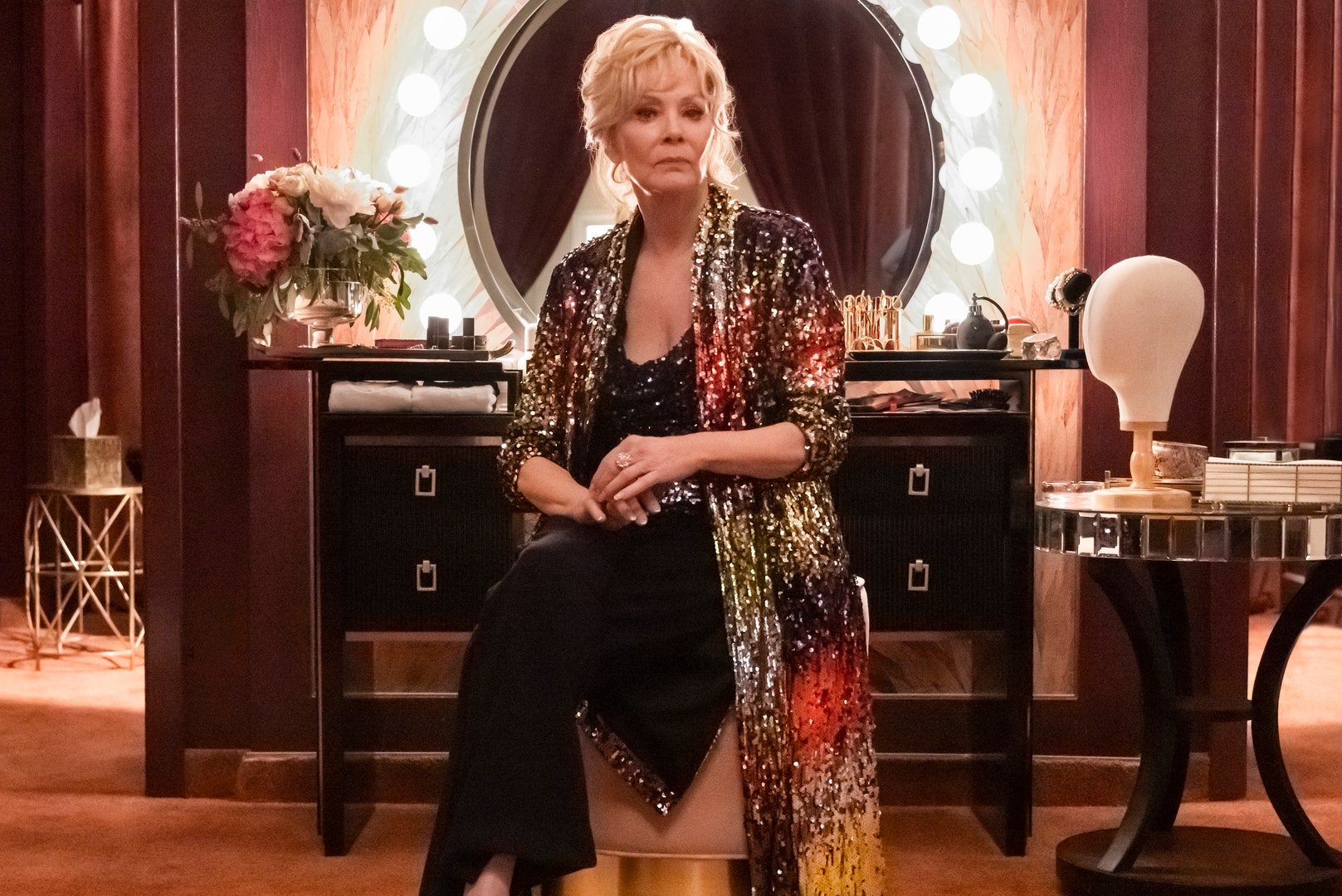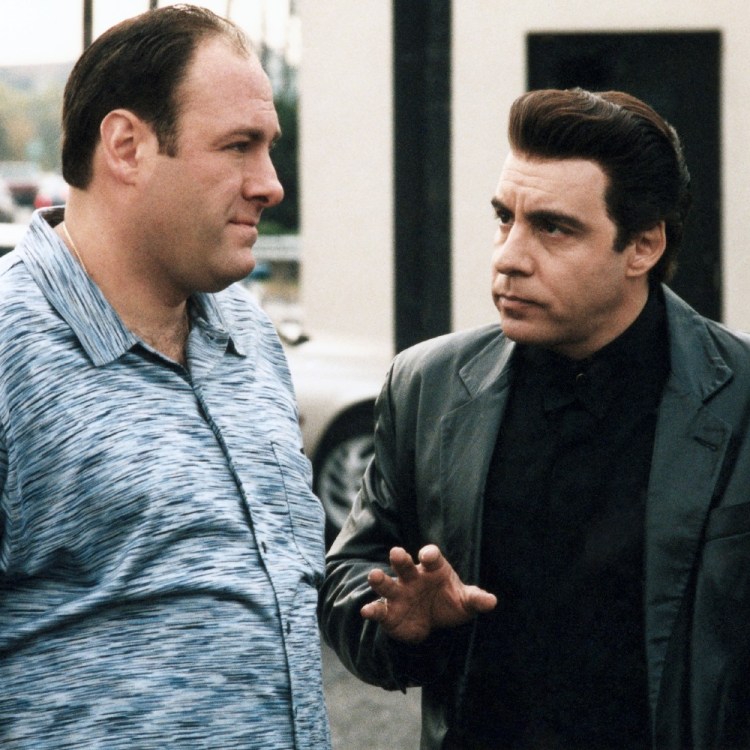Editor’s note: Light spoilers ahead.
The “Golden Age of TV” that we currently find ourselves in has thankfully made them more of a rarity, but for a while there, it felt as though every domestic sitcom was following the same formula. The King of Queens, According to Jim, Everybody Loves Raymond, even classics like The Honeymooners or cartoons like The Simpsons — they all featured a dimwitted, schlubby husband and the beautiful, way-out-of-his-league wife who exists mainly to nag him by acting as the voice of reason as he and his friends get into their weekly shenanigans.
It’s a trope rooted in sexism: the wives are no fun because they’re too concerned with things like keeping the house clean and tending to the children, while the husbands — who never lift a finger to help cook, do chores or spend any time with the kids — are allowed to remain irresponsible man-babies. They get to dress poorly and weigh whatever they want and be dumb enough to get sucked into some hare-brained “get rich quick” scheme every week, while their wives have to remain thin and conventionally attractive or all hell breaks loose. (Who can forget the season 1 episode of King of Queens in which Doug — played by the visibly overweight Kevin James — learns that the women in his wife Carrie’s family tend to put on weight as they age, so he asks her to preemptively go on a diet to avoid getting fat? Nowadays, an episode like that would be rightly deemed fatphobic and full of double standards, but in 1998 when it aired? Carrie went on the diet!)
AMC’s new satire Kevin Can F**k Himself sets those tired sitcom formulas in its crosshairs. (Its name is a not-so-subtle jab at James’s other series, Kevin Can Wait, which famously drew criticism for recasting its female lead, unceremoniously killing off the wife character after its first season and not even bothering to explain how she died.) The show, whose premiere debuted on the AMC+ streaming service on Sunday and will air on AMC on June 20, examines the reality of those long-suffering sitcom wives by employing two vastly different styles. The scenes where Allison (Annie Murphy) is interacting with her buffoonish husband Kevin (Eric Peterson) are brightly lit and shot in the style of a traditional multi-camera sitcom, complete with a laugh track, hammy acting and punchline-heavy dialogue. But whenever she’s away from Kevin, we see the reality of Allison’s world — it’s much dimmer, full of shadows and filmed like a gritty drama. The show shifts to a single-camera approach for these scenes, and we see that things are actually much bleaker than they seem. Their cozy home is actually full of roaches; the tomboyish neighbor who hangs out with Kevin as “one of the guys” and spits out sarcastic one-liners is actually selling opioids out of her salon.
The latter revelation sets up the show’s central plot: after 10 years of enduring a marriage in which she’s virtually invisible to her husband unless she’s the butt of a joke or being summoned to take care of something he needs, Allison reaches her breaking point when she finds out that Kevin spent all of their savings without telling her and decides that the only way out is to kill him and make it look like an overdose. Of course, the show covers plenty of important points about gender and the way it’s depicted in pop culture along the way, so the murder subplot is a little slow-going out of necessity. (It takes four full episodes for Allison to even get close to procuring the pills she needs to poison him.) But Murphy is excellent as the sad, exhausted wife who has finally realized that she’s been stuck in an emotionally abusive relationship for a decade.
That is, ultimately, the message behind Kevin Can F**k Himself: that the marriages we all grew up watching on sitcoms and laughing at are actually harmful. Allison’s husband has cast her into a life of almost total social isolation. (How many sitcom wives can you recall who have friends of their own?) Her whole world revolves around Kevin, and as we find out in a later episode, that’s by his design. The show pulls back the curtain on the selfishness and neediness that we’re trained to laugh at on TV comedies; when the canned guffaws and flattering lighting are stripped away, it’s clear how unhealthy Kevin’s behavior actually is. At one point, after he has called the police and reported their car stolen because he forgot that she borrowed it (despite the fact that she reminded him no less than three times), Allison calls out her neighbor Patty for laughing along at his antics and encouraging him. Patty is taken aback, and the best excuse she can come up with is that “it seemed harmless.”
That’s the thing: when casual misogyny is presented as funny, it reinforces the idea that it’s innocuous. Laughing something off implies it’s acceptable. By switching between a darker, Breaking Bad-esque aesthetic and a shiny send-up of the stereotypical sitcom, Kevin Can F**k Himself asks us to reexamine the shows we grew up watching and the ways they dismissed, made light of or even encouraged piss-poor treatment of women. If there’s one problem with the new series, it’s that the sitcom scenes are almost too spot-on; they’re aping TV shows that are painfully bad, and as such, some of the scenes are a little tough to sit through. They’re a pitch-perfect recreation of a shitty comedy — full of hacky jokes, knowing glances at the cameras and convoluted scenarios that are all tied up too neatly by the end of the episode — and even though we know the writers are in on the joke and the darker reality is coming, sometimes those scenes stretch on a little too long. Maybe that’s the point, though; we’re supposed to feel uncomfortable. Kevin Can F**k Himself isn’t out to poke some harmless fun at a tired genre — it’s aiming to blow it up entirely by forcing us to see it for what it really is.
This article appeared in an InsideHook newsletter. Sign up for free to get more on travel, wellness, style, drinking, and culture.


















